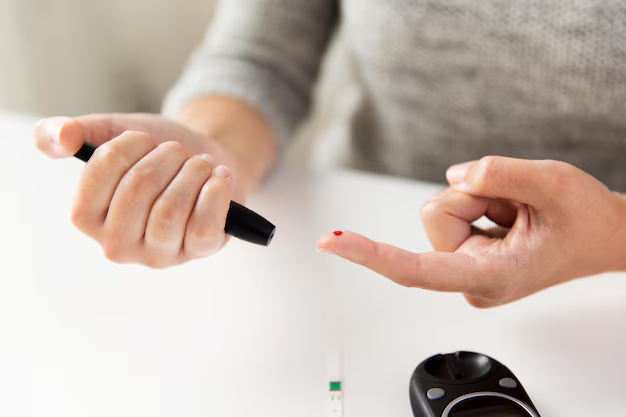Your Guide to What Blood Test For Diabetes
What You Get:
Free Guide
Free, helpful information about Diabetes FAQ and related What Blood Test For Diabetes topics.
Helpful Information
Get clear and easy-to-understand details about What Blood Test For Diabetes topics and resources.
Personalized Offers
Answer a few optional questions to receive offers or information related to Diabetes FAQ. The survey is optional and not required to access your free guide.
Understanding Blood Tests for Diabetes: What You Need to Know
Diabetes is a chronic condition that affects how your body processes blood sugar (glucose), and diagnosing it accurately is crucial. Various blood tests are available to determine if someone has diabetes or is at risk of developing it. If you've ever wondered what blood test can help detect diabetes, you're in the right place. Here’s a guide to the different blood tests used to diagnose diabetes and how they can impact your health.
Key Blood Tests for Diabetes
1. A1C Test
One of the most common tests, the A1C test measures your average blood sugar levels over the past 2 to 3 months. A result of 6.5% or higher on two separate tests indicates diabetes, while a range between 5.7% and 6.4% suggests prediabetes.
2. Fasting Blood Sugar Test
The fasting blood sugar test involves checking your blood sugar after an overnight fast. A normal reading is below 100 mg/dL. If your level is between 100 and 125 mg/dL, you might have prediabetes. A measurement of 126 mg/dL or higher indicates diabetes.
3. Glucose Tolerance Test
The oral glucose tolerance test is more comprehensive. After fasting overnight, your blood sugar is tested, then you drink a sugary solution. Your blood sugar levels are checked hourly for two hours. A level below 140 mg/dL is normal, whereas 200 mg/dL or higher suggests diabetes.
4. Random Blood Sugar Test
Unlike the other tests, the random blood sugar test doesn’t require fasting. A blood sugar level of 200 mg/dL or higher indicates diabetes.
Why Regular Testing Matters
Regular diabetes testing is crucial because early detection can significantly affect the management of the disease. It enables individuals to take control of their health, potentially reversing prediabetes through lifestyle changes or properly managing diabetes to prevent complications.
Understanding these tests can empower you to take charge of your health, but did you know that managing diabetes effectively also requires financial planning? Medications, healthcare visits, and lifestyle changes can be costly, which is where financial assistance comes into play.
Exploring Financial and Educational Resources
Once you know the type of test that suits your needs, it’s helpful to consider the financial and educational resources available. Diabetes management shouldn’t be hindered by financial constraints, and there are several programs that might offer aid:
Government Aid Programs: Explore Medicare and Medicaid, as these programs often cover blood glucose test strips, diabetes self-management training, and other diabetes-related needs.
Financial Assistance for Medication: Some pharmaceutical companies provide medication assistance programs, ensuring that patients can afford their prescriptions.
Debt Relief Options: If you’re struggling with medical debts, consider looking into debt consolidation loans or speaking with a financial advisor who can offer tailored advice.
Credit Card Solutions: Some credit cards offer health care financing plans or 0% interest periods to help manage medical expenses.
Educational Grants: Learn about educational grants for those interested in pursuing careers in healthcare management or diabetes education, a field that continues to grow as diabetes rates rise.
Taking these steps not only equips you to handle diabetes effectively but also alleviates the financial burden often associated with its management.
📋 Resources for Managing Diabetes Financial Burden:
🏛️ Government Programs:
- Medicare
- Medicaid
💊 Medication Assistance:
- Pharmaceutical programs offering discounts or free medications
📉 Debt Solutions:
- Debt consolidation options
- Financial advisors specializing in medical debt
💳 Credit Options:
- Health care financing credit cards
- Credit cards with 0% interest offers
🎓 Educational Opportunities:
- Grants for healthcare management studies
- Diabetes education programs
Understanding the blood tests for diabetes is the first step in managing your health. With the right financial resources, you can stay on top of your health without breaking the bank. Explore these options to find the assistance that best fits your needs.
What You Get:
Free Diabetes FAQ Guide
Free, helpful information about What Blood Test For Diabetes and related resources.

Helpful Information
Get clear, easy-to-understand details about What Blood Test For Diabetes topics.

Optional Personalized Offers
Answer a few optional questions to see offers or information related to Diabetes FAQ. Participation is not required to get your free guide.


